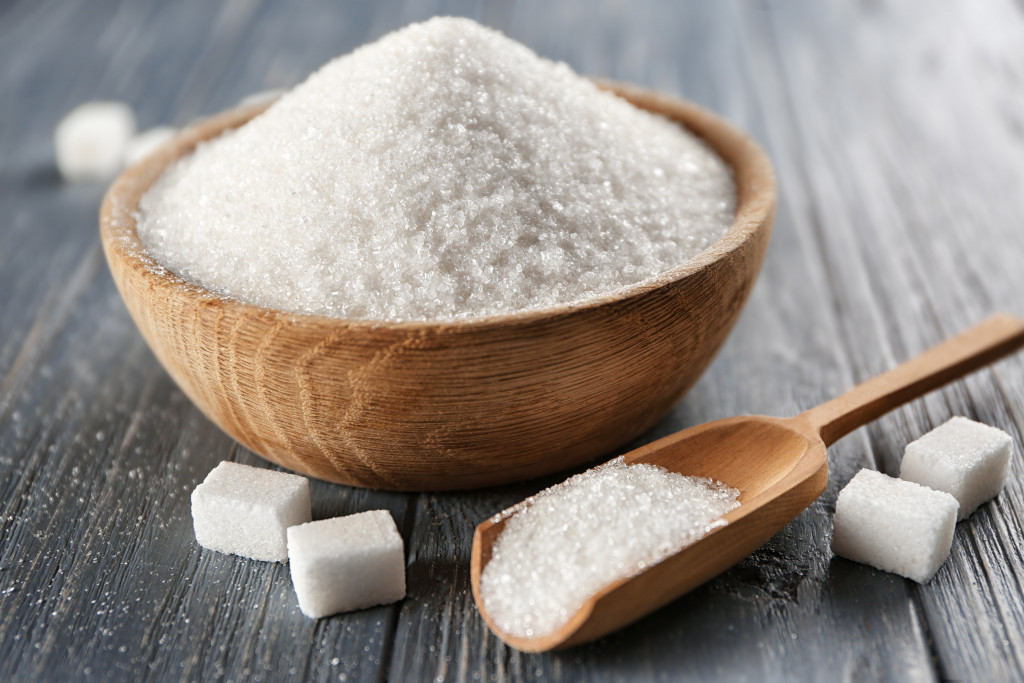People will tell you that too much sugar is bad for your body. But do you know why? It’s time to get the sweet truth about sugar and your health. Too much sugar can lead to weight gain, heart disease, and diabetes. But sugar isn’t all bad. In moderation, sugar can be part of a healthy diet. So, how much sugar is too much? And what are the best ways to enjoy sugar without overdoing it? Read on to find out.
The Dangers of Sugar
There’s no denying that sugar has some severe health consequences. High sugar consumption can lead to weight gain, heart disease, and diabetes. In fact, according to Harvard Health, the average American consumes seventeen teaspoons of sugar per day. That’s more than three times the recommended amount for men and more than double that for women. So if you consume too much, you are at risk of these health problems:
Weight Gain
One of the most well-known dangers of sugar is weight gain. When you eat sugary foods, your blood sugar levels spike and crash soon after. This can leave you tired and hungry, leading you to eat more throughout the day. Over time, this can lead to weight gain. In addition, studies have shown that a high intake of added sugars is associated with an increased risk of obesity.
Heart Disease
Another danger of consuming too much sugar is heart disease. Sugar is a significant source of calories in the American diet, and eating too many sugary foods can lead to weight gain. And as we mentioned before, being overweight or obese increases your risk of heart disease. In addition, overeating sugar can also raise your triglyceride levels—a type of fat that circulates in your blood—and increase inflammation throughout your body. Both of these effects can contribute to heart disease.
Diabetes
Consuming too much sugar can also lead to type 2 diabetes—a chronic condition that occurs when your body doesn’t produce enough insulin or doesn’t use insulin properly. Insulin is a hormone that helps regulate blood sugar levels in your body. When blood sugar levels are high, insulin helps move the sugar from your bloodstream into your cells, where it’s used for energy or stored for later use. Unfortunately, if you consume too much sugar, your cells can become insulin-resistant over time, leading to type 2 diabetes.
Cavities
Sugar is also a primary culprit in tooth decay and cavities. Bacteria in your mouth feed on sugars, producing acid that can wear away at the enamel of your teeth and lead to cavities. Cavities can lead to many oral health problems, such as tooth loss and gum disease.
Now that you know the adverse effects of sugar on your body, here are some ways to deal with the problems that come with sugar.

Oral Appliances
Let’s start with how you can deal with sugar on your teeth. You can protect your teeth from the acids and sugars of food through oral appliances. Your local orthodontist can recommend various devices for your teeth. These appliances include retainers, mouthguards, and braces. Orthodontic appliances not only protect your teeth but also improve the alignment of your jaw and teeth to give you a beautiful smile. There are also over-the-counter options, like toothpaste and mouthwash, that can help prevent cavities.
Alternatives to Sugar
You can also choose to consume specific alternatives to sugar. Here are three of the best options for sugar:
Stevia
There’s a good chance that you might have heard of stevia before. It’s a plant-based sweetener with no calories and can be used in baking and cooking. In addition, stevia is about 200 times sweeter than sugar, so a little goes a long way.
Honey
Another alternative to sugar is honey. Honey has been used for centuries as a natural sweetener. It does contain calories, but it also contains antioxidants, minerals, and vitamins that can benefit your health when consumed in moderation. Honey also has antibacterial properties and can help soothe sore throats or digestive issues.
Maple Syrup
Maple syrup is another natural alternative to sugar with some added benefits. Unlike refined sugars, maple syrup contains small amounts of certain nutrients like zinc and manganese. It also has a lower glycemic index than sugar, meaning it won’t cause as sharp of a spike in blood sugar levels.
Moderation is Key
In terms of weight gain and heart disease, the key is moderation. Avoiding sugary foods altogether may not be realistic or enjoyable for many people. So instead, focus on consuming them in moderation. The same goes for the alternatives to sugar mentioned above—enjoy them in moderation and balance them with a healthy diet.
Additionally, exercise is vital for maintaining a healthy weight and overall health. Aim for at least 150 minutes of moderate-intensity physical activity per week or 75 minutes of high-intensity physical activity.
Remember, the key to a healthy and happy life is balance. Enjoy sugary treats in moderation, and make sure to nourish your body with plenty of fruits, vegetables, whole grains, lean protein, and healthy fats. By making these choices, you can prevent or manage the adverse effects of too much sugar on your body.

